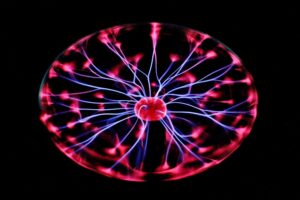Motivation is what drives us to succeed, but have you ever wondered why some people seem more driven than others? What makes them push through challenges and setbacks with an unwavering determination? The answer lies in the science of motivation. Understanding how motivation works can help you tap into your own inner drive and achieve greater success in all areas of life. In this blog post, we’ll explore the different types of motivation, theories behind it, intrinsic vs extrinsic motivation, the role of rewards in motivating us, and how it impacts performance. So sit back, relax and let’s dive deep into what truly drives us to succeed!
The Different Types of Motivation
Motivation is the driving force behind achieving our goals and aspirations. There are different types of motivation that can help us achieve success in different areas of life. The first type is intrinsic motivation, which comes from within ourselves. It’s driven by an internal desire to do something for personal satisfaction or interest.
Extrinsic motivation, on the other hand, comes from external factors such as rewards or punishments. It’s driven by a desire to receive a tangible benefit or avoid negative consequences.
Another type of motivation is achievement motivation, which focuses on setting and reaching goals. People who have high achievement motivations tend to be highly motivated, persistent and goal-oriented.
Affiliation motivation focuses on social connections with others and the need for interpersonal relationships. People with high affiliation motivations derive their drive from being part of a group or community.
Power motivation involves having control over others or situations. Individuals with high power motivations are often ambitious and assertive leaders who enjoy making decisions and influencing those around them.
Understanding the different types of motivational drivers can help us identify what motivates us personally in order to achieve success in various aspects of our lives.
Theories of Motivation
Theories of Motivation are important to understand what drives us towards our goals. One such theory is Maslow’s Hierarchy of Needs which suggests that humans have different needs at different levels and once one level is fulfilled, they move on to the next. This hierarchy starts with physiological needs like food and water, then safety needs like security, followed by love/belonging needs, self-esteem needs and finally self-actualization.
Another theory is Herzberg’s Two-Factor Theory which proposes that there are two types of factors in a workplace – hygiene factors (like salary) and motivation factors (like recognition). While hygiene factors don’t necessarily motivate employees, their absence can cause dissatisfaction. On the other hand, motivation factors lead to job satisfaction.
The Equity Theory suggests that people compare their inputs and outcomes with others around them in order to feel fairly treated. If there is perceived inequality or injustice in this comparison process, it can lead to demotivation.
Understanding these theories can help individuals and organizations create an environment where employees feel motivated and satisfied in achieving their goals.
Intrinsic vs. Extrinsic Motivation
When it comes to motivation, there are two main types: intrinsic and extrinsic. Intrinsic motivation is driven by internal factors such as personal satisfaction, enjoyment or a sense of accomplishment, while extrinsic motivation is influenced by external factors such as rewards or recognition.
Intrinsic motivation can often lead to greater creativity and innovation because individuals are motivated simply by the joy they receive from pursuing their passions. This type of motivation can be seen in hobbies or personal projects that people engage in purely for pleasure.
On the other hand, extrinsic motivation is often used in workplaces through bonuses or promotions as an external reward system. While this may drive performance initially, research shows that over time it can actually decrease intrinsic motivation and harm overall job satisfaction.
The key takeaway here is that both forms of motivation have their place and influence on our behavior. However, understanding which form drives us personally can help us better align with our goals and improve overall performance.
The Role of Rewards in Motivation
Rewards are commonly used as a motivator in various settings, from the workplace to schools and even at home. The concept of rewarding someone for their efforts is based on the premise that humans are wired to seek pleasure and avoid pain.
There are different types of rewards, including material rewards such as money or gifts, social rewards like recognition or praise, and intrinsic rewards such as personal satisfaction or a sense of accomplishment. Rewards can be classified into extrinsic (outside) or intrinsic (inside) categories.
Extrinsic motivation is when people engage in an activity because they expect some external reward like money, recognition or promotion. On the other hand, intrinsic motivation comes from within; people do something because it satisfies them personally without any expectation of external reward.
Rewards can have both positive and negative effects on motivation. While receiving a reward can increase motivation temporarily, relying solely on extrinsic rewards may lead to reduced intrinsic interest over time because people start losing touch with their internal drive.
While rewarding individuals for their achievements can be an effective way to motivate them in the short term but could potentially backfire if overused. A balance between extrinsic and intrinsic motivations needs to be struck so that individuals feel motivated even when there’s no immediate external benefit involved
The Impact of Motivation on Performance
Motivation is a powerful force that can greatly impact an individual’s performance.
When someone is motivated, they are more likely to put forth effort towards achieving their goals and responsibilities.
This increased effort can lead to improved productivity, efficiency, and overall performance.
One way motivation impacts performance is by increasing focus and attention.
When someone is highly motivated, they tend to be more engaged in their work or task at hand.
They may also be less likely to become distracted or lose interest.
Since the goal or reward they seek serves as a constant reminder of why they are doing what they’re doing.
Motivation can also have positive effects on creativity and problem-solving abilities.
Motivated individuals are more willing to take risks and explore new ideas since the potential rewards has strong incentives.
Additionally, when faced with challenges or obstacles, motivated individuals tend to persevere until a solution is found.
On the other hand, lack of motivation can have detrimental effects on one’s performance.
Without proper drive or incentive, individuals may struggle with procrastination, lethargy or apathy.
These will leads them down unproductive paths that not only affect personal growth but hinder progress within organizations too.
It’s clear that motivation plays an integral role in driving success – whether personally or professionally.
It also help in improving focus and attention span while positively impacting creativity & problem solving skills.
However its absence could worsen procrastination tendencies leading down unproductive paths instead of growth opportunities both individually & organizationally!
Conclusion
Motivation is an important factor that drives us to succeed.
It can come from within ourselves or be influenced by external factors such as rewards and recognition.
Understand the different types of motivation, theories, and how it impacts performance, and harness this knowledge to achieve our goals.
The science of motivation is complex but fascinating.
The intrinsic and extrinsic motivations are both valuable in their own ways depending on the situation at hand.
Rewards play a crucial role in motivating people while also improving performance.
Ultimately, whether you’re trying to motivate yourself or others around you, it’s essential to understand what drives success.
Motivation isn’t just about getting something done; it’s about feeling fulfilled and satisfied with your accomplishments.
By using the insights from this blog post on “The Science of Motivation: Understanding What Drives Us to Succeed,”.
We hope you’ll find new ways to motivate yourself and those around you towards achieving great things!








